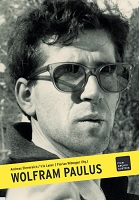Wolfram Paulus
| dc.contributor.author | Arnold, Andrey | |
| dc.contributor.author | Ehrenreich, Andreas | |
| dc.contributor.author | Foerster, Lukas | |
| dc.contributor.author | Fraueneder, Iris | |
| dc.contributor.author | Guarneri, Michael | |
| dc.contributor.author | Haidenthaler, Jona | |
| dc.contributor.author | Laner, Iris | |
| dc.contributor.author | Mannes, Ulrich | |
| dc.contributor.author | Moser, Natalie | |
| dc.contributor.author | Rückert, Friederike | |
| dc.contributor.author | Sonne, Sven | |
| dc.contributor.author | Strasser, Christian | |
| dc.contributor.author | Straub, Wolfgang | |
| dc.contributor.author | Thomson, Martin | |
| dc.contributor.author | Widegger, Florian | |
| dc.contributor.editor | Ehrenreich, Andreas | |
| dc.contributor.editor | Laner, Iris | |
| dc.contributor.editor | Widegger, Florian | |
| dc.contributor.other | Händl, Klaus | |
| dc.contributor.other | Paulus, Wolfram | |
| dc.contributor.other | Strihavka, Manuela | |
| dc.date.accessioned | 2023-09-27T13:50:18Z | |
| dc.date.available | 2023-09-27T13:50:18Z | |
| dc.date.issued | 2022 | |
| dc.identifier | OCN: 1401950777 | |
| dc.identifier.uri | https://library.oapen.org/handle/20.500.12657/76459 | |
| dc.description.abstract | His critically acclaimed debut feature, Hideouts (1986), established screenwriter and director Wolfram Paulus (1957–2020) as an important voice of New Austrian Film. Paulus devoted his career to chronicling his homeland and its inhabitants. Over the course of the 1990s, he transitioned from stylistically ambitious character studies for cinema to TV films with broad public appeal. Drama and comedy were his preferred genres. He also directed children’s films and dwelled on historical topics, mostly from the National Socialist period. Beyond the well-known fictional features, Paulus created experimental and documentary works. Moreover, he was a committed pedagogue and produced many educational films with pupils. This edited collection offers interdisciplinary perspectives on Paulus’ multifaceted oeuvre, which has previously received little scholarly attention. The chapters examine production and reception, motifs and aesthetic strategies, film education and unmade projects. This is complemented by a detailed filmography and interviews with Wolfram Paulus and his colleagues. | en_US |
| dc.language | German | en_US |
| dc.subject.other | Film; Television; Realism; Austria; Germany | en_US |
| dc.title | Wolfram Paulus | en_US |
| dc.type | book | |
| oapen.abstract.otherlanguage | Der Autor und Regisseur Wolfram Paulus (1957–2020) wurde durch sein von der Kritik gelobtes Spielfilmdebüt „Heidenlöcher“ (1986) zu einem wichtigen Vertreter des Neuen Österreichischen Films. Zeit seines Lebens widmete er sich der filmischen Durchdringung seiner Heimat und der Menschen, die diese Heimat ausmachen. Im Lauf der 1990er Jahre verlagerte er seinen Schwerpunkt von stilistisch ambitionierten Charakterstudien für das Kino zum publikumstauglichen Fernsehfilm. Seine bevorzugten Genres waren das Drama und die Komödie. Immer wieder legte Paulus Filme für Kinder und Jugendliche vor und entwickelte historische Stoffe, wobei er sich intensiv mit dem Regime des Nationalsozialismus befasste. Neben den bekannteren abendfüllenden Spielfilmen schuf der Regisseur viele experimentelle und dokumentarische Arbeiten. Zudem engagierte er sich als Filmpädagoge und -vermittler. Aus diesem Interesse ging eine Reihe von Filmbildungsprojekten hervor, die Paulus gemeinsam mit Schülern umsetzte. Der Sammelband bietet interdisziplinäre Perspektiven auf das Werk, das von der Wissenschaft bisher kaum beachtet wurde. Neben Produktion und Rezeption untersuchen die Beiträge Motive und ästhetische Strategien, Filmbildung und nicht realisierte Projekte. Weiters enthält der Band Interviews mit Wolfram Paulus und seinen Mitarbeitern sowie eine detaillierte Filmografie. | en_US |
| oapen.identifier.doi | 10.55192/j2978 | en_US |
| oapen.relation.isPublishedBy | ed080b58-3ba7-44b0-af42-14bb3920bce6 | en_US |
| oapen.pages | 392 | en_US |
| oapen.place.publication | Wien | en_US |
| oapen.remark.public | Funder names: Land Salzburg; Stadt Salzburg; Universität Mozarteum Salzburg; Martin-Luther-Universität Halle-Wittenberg |

